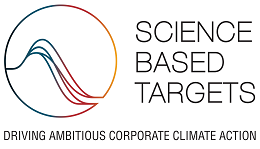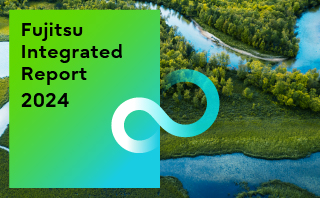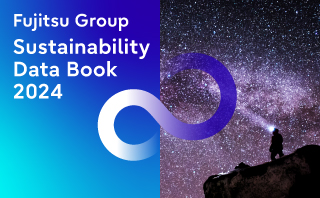-
Sustainability at Fujitsu Group
- Sustainability Management in the Fujitsu Group
- GRB(Global Responsible Business)Goals and Achievments for FY2022
- GRB(Global Responsible Business)Goals for FY2025
- Fujitsu's accessibility
- Stakeholder Engagement
- United Nations Global Compact
- SDG-related Activities in Fujitsu
- External Recognition and Awards
-
Global Responsible Business
- Environment
-
- Environmental Management
- The Fujitsu Group Environmental Vision on Climate Change
- Living in Harmony with Nature (Conservation of Biodiversity)
- Environmental Action Plan
- Environmental Data
- Environmental Communication
- Environmental Social Activities
- Disposal and Recycling of ICT products
- Environmental Considerations in ICT Products
- Governance
-
Data and Documents
- Fujitsu Group Sustainability Data Book 2024
- Social, Governance and Environmental data
- Independent Assurance Report

- GRI Standards / United Nations Global Compact (UNGC) principles Comparison Table
- SASB Standards Comparison Table
- Sustainability Information Disclosure Framework
- Link to regions responsible business reports
- Contact
- Sitemap
Environmental Targets
The Fujitsu Group participates in the following initiatives with the aim of making the Fujitsu Climate and Energy Vision—its medium- to long-term environmental vision—a reality.
Net-Zero Target Validation Gained from Science Based Targets (SBTi)
 ”Science Based Targets” logo
”Science Based Targets” logo
In August 2017, the greenhouse gas (GHG) emission reduction targets set by the Fujitsu Group for emissions from its business facilities and value chain was approved by the Science Based Targets initiative (SBTi) as meeting the science-based level of ambition criteria. The SBTi was established in 2015 jointly by a number of organizations, including the World Resources Institute (WRI) and UN Global Compact. It encourages companies to set GHG emission reduction targets consistent with science-based evidence to the level required by the Paris Agreement, with the aim of limiting the global average temperature increase caused by climate change to 1.5 degrees above pre-industrial levels.
In April 2021, we updated our target from 33% reduction against the base year FY2020 to 71.4% by FY2030 and received acknowledgment of our 1.5 °C-aligned strategy from SBTi.
Furthermore in June 2023, we decided to further advance our existing target and aim for net-zero by FY2040. We also received Net-Zero Target validation from the SBTi.
Net-Zero Target
- To reduce GHG emissions at our business sites (Scope 1, 2) and from the entire value chain (Scope 3) by at least 90% by FY2040 against a baseline of FY2020 (*1).
- *1Less than 10% of residual emissions are removed and stored by technologies that directly capture CO2 from the atmosphere or through absorption by afforestation and other means.
Global Collaboration with the Climate Group through RE100
In July 2018, the Fujitsu Group became Japan's first Gold Member of RE100 (*2), an initiative which aims to significantly expand the adoption of renewable energy on a global scale. At the time, the Fujitsu Group pledged to use renewables to provide at least 40% of the electricity consumed across all global sites by 2030, and 100% by 2050.
RE100 is an initiative led by international NGO The Climate Group in partnership with CDP and consists of companies committed to source 100% of their electricity requirements from renewable sources.
While we received SBTi's Net-Zero Target validation, we also moved up our previous target date for 100% renewable electricity from 2050 to 2030. This action accelerated our efforts to reach carbon neutrality by 20 years. To achieve this target, we will continue to roll out activities based on the corporate action plan. As Fujitsu Group we will expand our procurement of renewable energy-sourced electricity for data centers outside Japan and other sites in Japan as well as around the globe. We will achieve this by considering the most appropriate means for each region. At the same time, we will invest in new power sources, including PPAs (*3). This way we will contribute to the spread of renewable energy in society as a whole.
- *2RE100 is an initiative led by The Climate Group, an international NGO, in partnership with CDP, and is made up of companies that aspire to obtain 100% of the electricity they use from renewable sources.
- *3PPA stands for Power Purchase Agreement, under which consumers (primarily businesses who wish to use renewable electricity) enter into a long-term contract with a power producer or retail electricity provider to purchase electricity generated from renewable energy sources.
 ”RE100” logo
”RE100” logo


